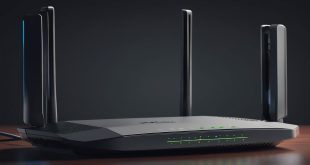Privacy and security are now major concerns in the digital age particularly with the spread of communication technologies. Intercepting phone conversations text messages or other electronic communications without the parties permission is a surveillance tactic called phone tapping also referred to as wiretapping. Due to the serious ethical legal and privacy issues raised by this practice people and organizations need to be aware of the ins and outs of phone tapping recognize warning indications of possible surveillance take preventative action and navigate the legal ramifications of doing so.
Understanding Phone Tapping:
Phone tapping is the umbrella term for a variety of communication interception techniques from sophisticated digital surveillance methods used on mobile devices to conventional wiretapping on landline phones. The main goals of tapping phones are to improve national security obtain intelligence track illegal activity and conduct investigations. On the other hand illegal phone tapping that is carried out without the required legal authority or a good reason is considered a privacy violation and can have legal repercussions.
The signs and indicators that point to phone tapping. Given that contemporary surveillance methods are intended to be discrete and covert it can be difficult to detect phone tapping. However people should be aware of the following signs and indicators:
Unusual Background Noises: Clicking sounds static echoes buzzing and other unexpected noises during phone conversations may be signs of phone tapping. These sounds could come from surveillance software or interception devices.
Overheating and Fast Battery Drain: If your smartphone overheats or has a fast battery drain particularly when its idle it may be an indication that spyware or malicious software is being used to spy on you.
Unaccounted for Data Usage: Keep an eye out for any unexpected spikes in data usage or unusually high consumption on your phone as these could indicate unapproved data transfers linked to phone tapping activities.
Unusual Behavior: Keep an eye out for any strange behavior your phone may be displaying like unexpected shutdowns apps that open or close on their own or messages that are sent without your knowledge. These strange things might be signs of illegal access or device modification.
Network anomalies: Keep an eye out for any odd activity on your network such as unapproved connections or data transfers. These could be signs of attempts to eavesdrop on your conversations or jeopardize the security of your device.
Suspicious Text Messages or Emails: Exercise caution when responding to any unsolicited text messages emails or notifications that ask for sensitive information or include strange links or attachments. These might be attempts at phishing or spyware installation

vectors. Strategies for Mitigation and Prevention:
Taking preventative steps can help lessen the risks connected to unapproved surveillance even though it can be difficult to detect phone tapping.
Ensure Confidentiality of Conversations and Data by Using Encrypted Communication Channels: To safeguard the privacy of your conversations and data make use of messaging apps and platforms that provide end-to-end encryption.
Update Security Software: To patch vulnerabilities and fend off malware or spyware attacks update the operating system apps and security software on your mobile device on a regular basis.
Avoid Public Wi-Fi Networks: Steer clear of public or unsecured Wi-Fi networks as they can be used by nefarious actors to intercept data and gain unauthorized access.
Enable Two-Factor Authentication (2FA): Whenever feasible add an additional layer of verification for access and strengthen the security of your accounts by turning on two-factor authentication (2FA).
Monitor Permissions and Settings: Regularly review and audit the permissions granted to apps on your device ensuring that only necessary permissions are enabled. Unused features and services that could be dangerous for security should be disabled.
Install Anti-Spyware Tools: To check your device for possible surveillance software and guard against intrusion attempts think about installing trustworthy anti-spyware or anti-malware programs. Adhere to digital hygiene by avoiding clicking on unknown or untrusted content and being wary of dubious links emails or messages. Acquire knowledge about typical phishing techniques and exercise caution when facing social engineering scams.
Rights to privacy and their implications legally:
Each jurisdiction has its own laws and regulations governing privacy rights and surveillance practices which affect whether or not phone tapping is legal. Unauthorized phone tapping is forbidden and a breach of privacy laws telecom regulations and constitutional rights in many nations including India.
Phone tapping in India is governed by the Information Technology (Intermediary Guidelines and Digital Media Ethics Code) Rules 2021 and the Indian Telegraph Act 1885. These laws specify the circumstances in which it is permissible to tap a phone including getting a valid interception order from authorized authorities for particular uses like criminal or national security investigations.
Individuals have the right to privacy and protection against unauthorized surveillance as enshrined in the Constitution of India under Article 21 (Right to Life and Personal Liberty) and Article 19 (Right to Freedom of Speech and Expression). Legal repercussions such as civil liabilities criminal charges and damages compensation may follow any infringement of these rights through unauthorized phone tapping or surveillance operations.
In conclusion,
juggling privacy and security in the digital age. The sensitive balance that must be struck in the digital age between security requirements and individual privacy rights is highlighted by the ongoing controversy surrounding phone tapping. Legitimate surveillance techniques must be carried out within the parameters of legal authority oversight and transparency even though they might be required for public safety national security and law enforcement.



